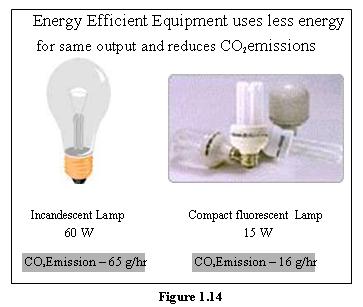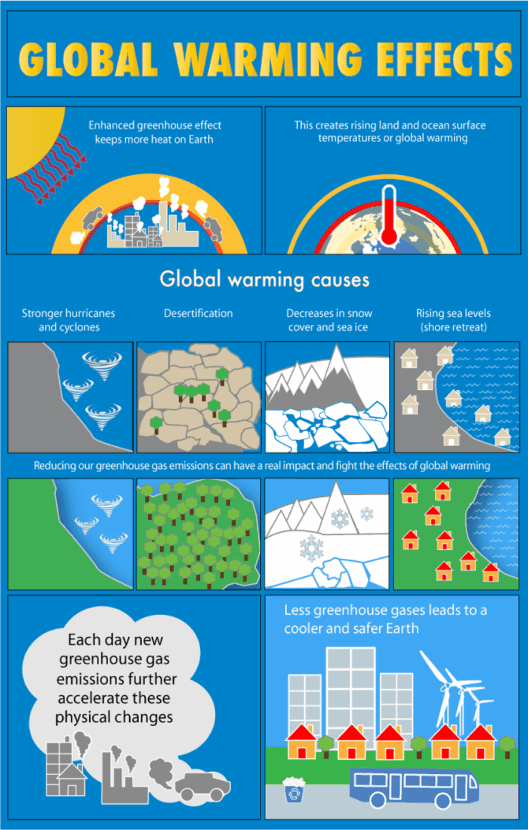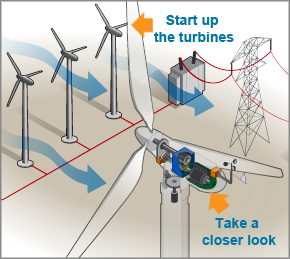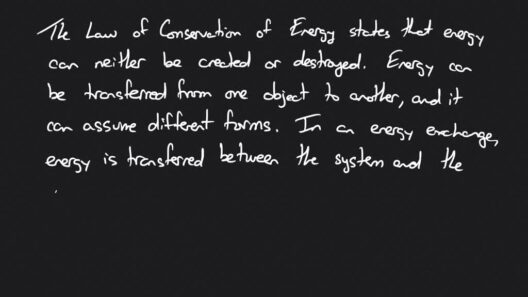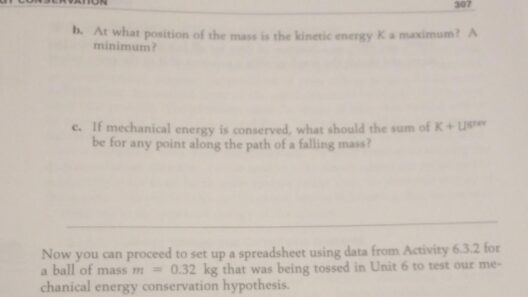In recent decades, energy conservation has emerged as a pivotal focus in discussions surrounding environmental sustainability and climate change. The term encompasses more than just saving energy; it embodies a conscious lifestyle choice aimed at reducing wastefulness. Energy conservation is integral in combating ecological degradation, diminishing dependence on non-renewable resources, and ensuring sustainability for future generations. This article delves into the essence of energy conservation, elucidating its significance, methods, and broader implications.
Understanding energy conservation requires an appreciation of its foundational principles. At its core, energy conservation refers to the practice of using less energy through increased efficiency and reduced consumption. While it may seem straightforward, the implications of energy conservation stretch far beyond simple resource management. By curtailing excess energy use, individuals, communities, and nations reduce their carbon footprints and mitigate the adverse effects of climate change.
When one reflects on the myriad ways energy manifests in daily life, from the flick of a light switch to the hum of an air conditioner, the urgency of conservation becomes palpable. Many individuals harbor an awareness of energy consumption, yet the deep-seated motivations behind energy conservation often remain unexamined.
At a fundamental level, the motivation for energy conservation can be attributed to three critical factors that interplay: environmental responsibility, economic benefits, and social responsibility.
Environmental Responsibility: Protecting the Planet
The most conspicuous reason to embrace energy conservation is the urgent need to protect our planet. With the escalating consequences of climate change, including extreme weather events, rising sea levels, and biodiversity loss, the imperative to reduce greenhouse gas emissions has never been more apparent. Energy production, especially from fossil fuels, is a significant contributor to these emissions. By reducing energy consumption, we subsequently decrease our reliance on these detrimental sources.
Moreover, conserving energy diminishes air pollution, which has far-reaching health implications for humans and ecosystems alike. The soot and emissions resulting from energy production lead to respiratory ailments, acid rain, and substantial environmental degradation, compromising the health of both flora and fauna.
Economic Benefits: Saving Money and Resources
An additional allure of energy conservation lies in its economic advantages. The financial implications of excessive energy use can strain household budgets and national economies alike. By implementing energy-efficient practices, individuals can substantially lower their utility bills and extend the lifespan of appliances.
Moreover, economies that prioritize energy conservation can bolster resilience against market volatility associated with fossil fuel fluctuations. By investing in renewable energy sources and enhancing energy efficiency measures, nations can stimulate job creation and foster sustainable economic growth. This pivot towards a green economy offers a pathway to reducing unemployment and improving economic stability.
Social Responsibility: Building a Sustainable Future
Beyond the immediate benefits to the environment and economy, energy conservation fosters a sense of social responsibility. In an era marked by global inequality, the effects of energy consumption are not distributed evenly. Wealthier populations tend to consume disproportionately greater amounts of energy, which exacerbates social divides. Energy conservation is not merely a personal choice; it carries the potential for collective action that promotes equity and fairness.
Communities that embrace conservation practices can inspire collective responsibility and foster a culture of sustainability, encouraging individuals to think critically about their impact on the environment. Furthermore, such communal efforts can strengthen relationships, as neighbors gather to share resources, knowledge, and solutions.
Practical Strategies for Energy Conservation
Implementing energy conservation doesn’t require monumental changes; instead, it thrives on small, consistent actions that accumulate over time. Here are several practical strategies to incorporate energy-saving measures into daily life:
1. **Upgrade to Energy-Efficient Appliances**: Opt for appliances with high Energy Star ratings. These not only consume less energy but also deliver better performance and longevity.
2. **Harness Natural Resources**: Utilize daylight whenever possible. Opening blinds during the day reduces the need for artificial lighting, subsequently lowering energy consumption.
3. **Optimize Heating and Cooling**: Adopt programmable thermostats to regulate temperatures efficiently. This avoids unnecessary heating or cooling during periods when spaces are unoccupied.
4. **Embrace Renewable Energy Sources**: Wherever feasible, invest in home solar technologies or wind systems. Not only do they reduce reliance on fossil fuel energy, but they also promote long-term sustainability.
5. **Practice Mindful Consumption**: Cultivate an awareness of energy usage by turning off devices when not in use, using energy-efficient lighting, and understanding energy consumption patterns.
The Path Forward: Integrating Energy Conservation into Everyday Life
The journey towards energy conservation begins as an individual effort but can blossom into a larger communal ethos. Every small action adds up, creating ripples that can lead to significant change. As rigorous as the challenges of energy overconsumption may seem, awareness coupled with conscious action can turn the tide.
Energy conservation serves as an archetype of environmental stewardship, urging us to reconsider our relationship with energy. By embracing the principles of conservation, we participate in the essential work of protecting our planet, enhancing our economies, and fostering social responsibility. Each action taken in the name of energy conservation is a step toward a healthier, more equitable world. Let this collective consciousness shape our future, laying the foundation for a more sustainable existence.



